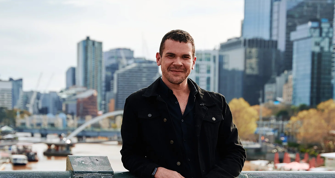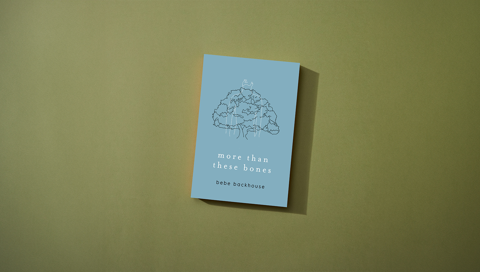Explore upcoming events

As May rapidly approaches, we are so excited to welcome you to the Festival and to introduce you to the writers who make it all worthwhile. To awaken your Festival spirit, we're got a series of Q&As to introduce some of the 2024 participants. Get to know them as we discuss their reading, their writing practice and the Festival theme, Take Me Away.
Bebe Oliver's debut poetry collection is more than these bones. He is a descendant of the Bardi Jawi people of the Kimberley region of Western Australia and is an award-winning writer based in Naarm. Working as a writer, illustrator, poet and musician, Bebe's work is interested in love, loss, identity, Aboriginal and gay existence, place and Country.
What kind of books do you get lost in while reading?
I love books that tell of a Blak existence and all the different meanings this can have. Poetry, memoir, fiction, fantasy, essays, they all present an opportunity for considering and learning about different perspectives and understandings. The culture needs to push the boundaries of what it thinks First Nations writers experience as people, so I get completely immersed when I read a book that blends a Blak life with queerness, triumph, struggle, interrogation or even something as simply human as love.
Is there a book you wish you could read for the first time again?
My first time reading Black and Blue by Aunty Veronica Gorrie left me speechless. She wrote with such raw honesty and commitment to her history and the reality of the ongoing struggles for Aboriginal people. Nangamay Mana Djurali, which was edited by Alison Whittaker and Steven Lindsay Ross, was an absolute celebration of queer First Nations life and it obliterated the literary landscape with truth and diversity. The Alchemist by Paulo Coelho is a classic I can read over and over too. Its themes of fate, connection and humanity will always be relevant.
What books or writers inspire you?
I’m an advocate for First Nations voices and truths and right now there are so many books that platform this so well. Melissa Lucashenko, Ellen van Neerven, Daniel Browning, Susie Anderson, there’s such a multiplicity in talent and work. I’m also inspired by the voices of writers like Keith Quayle, Laniyuk and Lay Maloney, and anyone who presents their values and cultural identity in their words. Authenticity takes bravery and that’s what I see in all of these writers.
How does your work across music, performance and poetry meld together in your creative practice?
To me, any creative path forms my existence. I’ve been making music, telling stories and performing since I was small and I’ve inherited this from my Aboriginal culture as part of my DNA. If I write music, the notes on the page tell a story in the same way words do, and that music came from an emotion or thought I’d had. My poems are recounts of thoughts and actions, and I’m always striving to tell a story of life to help myself and others understand more. The individual parts of my creative practice are all connected and derive from my truth, so the melding and performance of my work is really the surfacing of my identity.
What made you want to write more than these bones?
The origin of more than these bones is between the pages of my journals when I was in love with a man for the first time. That relationship allowed me to discover so much of myself and it fuelled me with such intense emotions that when it ended I was determined to tell the story of the love I found and lost. My grandmother had also just died and I was confused and lost, wanting to run from the pain and find the relief, so the more I wrote and pieced together, the more I realised that I was actually on a great journey of discovery, learning and healing. By the time the book was finished, I’d come to meet and know myself all over again.
What events are looking forward to attending at the Festival?
There are so many good storytellers and creators to choose from, and I can’t be everywhere all at once, so I’ve decided on a few that really excite me. Jane Harrison tells such an important story in her book and play, The Visitors, so I’m looking forward to seeing and hearing her speak about reimagining history and its layers and consequences. Survival, Sustenance and Stories will also be an event I’m glued to the seat for because any opportunity to hear stories and thoughts on challenges and changes in our society is one I’m seizing with both hands. There’s so much great literature, stories and truths we’re seeing that deserves to be celebrated.
